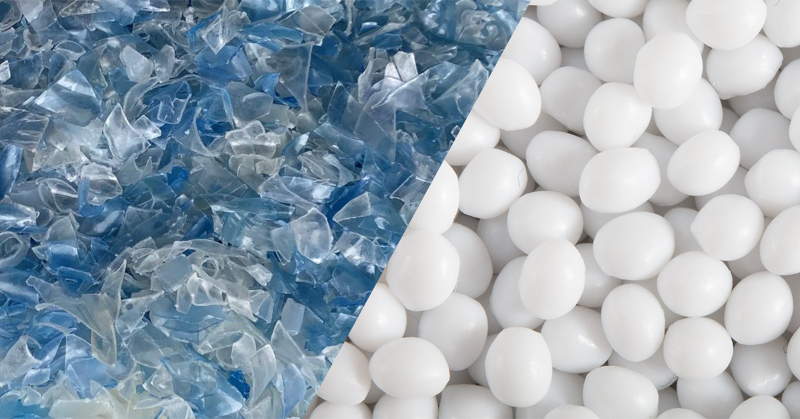Neo Group started to produce PET resins with 25% recycled secondary raw materials
At the beginning of this year, UAB Neo Group, a PET producer operating in Klaipėda FEZ in Lithuania, produced and sent to customers for testing the first PET resins, which were manufactured using up to 25% of recycled raw materials. The company predicts that the commercial application – PET packaging – of this fully circular product will be presented to the market by converters in early May. In the next 3-5 years, Neo Group plans that recycled PET will account for 25-30% of the total production.
From the very beginning of Neo Group’s operations, only fossil raw materials have been used for the production of PET resins. However, by monitoring the market trends and preparing for the EU directive that will come into force in 2025, the company started experimental research in the laboratory back in 2019 by using the secondary, rPET, in the production process. After a year of trials, in 2020, on one production line Neo Group successfully produced food-contact PET resins with 15% of rPET, which in terms of quality and technical parameters were in the same high level as the primary raw material; and this year PET resins with 25% rPET.
Ruslanas Radajevas, CEO of Neo Group, comments that the technology for using rPET in production was not purchased, but 100% developed by in-house, by Klaipėda engineers, technologists, and scientists. Therefore, Neo Group did not purchase the patent rights but is currently patenting its own developed process technology in the EU itself. “Back in 2011 we installed a technology that allows the by-products of PET production process to be chemically recycled into polyester polyols, which are widely used in the construction industry. This experience and know-how have helped us a lot over the past few years in the development of the technology for using rPET in our PET resin production process: our technologists have adopted a market-unique way to dissolve, purify and use secondary rPET material in our production lines. We plan to start commercial delivery of our new product, trademark NeoPET Cycle, in May,” says Radajevas.
According to him, it is planned to start the production of PET resins with 25-30% of rPET on the other two production lines in 2023-2025, depending on the availability of secondary raw materials and customer demand increase: the major European beverage producers are currently preparing for the EU directive that will enter into force in 2025, but some producers will only start their preparations in 2023 or even 2024.
According to Ruslanas Radajevas, the current technology of the company with additional investments in equipment gives the opportunity to reach up to 50% of the secondary raw materials – the NEO GROUP team is further developing this direction, especially, having in mind that the EU will require a 30% of rPET content in beverage packaging starting from 2030. However, according to Neo Group, the shortage of secondary raw materials in the EU market remains a challenge, which makes it necessary to further strengthen the ecosystem for the collection of post-consumer packaging and society education.
Neo Group is a part of the international group Retal Industries Ltd.

